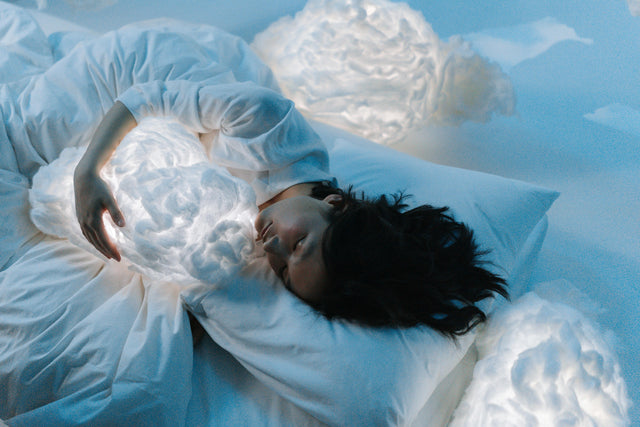Smell to Sleep Better: How Scents and a Dehumidifier Can Improve Your Sleep
Smell to Sleep Better: How Scents and a Dehumidifier Can Improve Your Sleep
🌙 Why Scents and Air Quality Matter for Sleep
Struggling to fall asleep or waking up groggy? Your sense of smell plays a huge role in sleep quality. Certain aromas can calm the mind, while air humidity levels affect breathing comfort.
In this guide, we'll explore:
✅ The best scents for relaxation and deep sleep
✅ How high humidity ruins sleep (and why a dehumidifier helps)
✅ A perfect sleep setup with scents and air quality control
Let’s dive in! 💤
🕯️ 1. Best Scents for Better Sleep
Aromatherapy is scientifically proven to influence mood and relaxation. The following scents can help you fall asleep faster:
🌿 Lavender – The Ultimate Sleep Aid

- Reduces heart rate and blood pressure, promoting deep relaxation.
- Studies show lavender increases slow-wave sleep, leading to deeper rest.
- Best used as essential oil, pillow spray, or dried lavender sachets.
💡 Tip: Add a few drops of lavender essential oil into a diffuser before bedtime.
🍊 Bergamot & Citrus – Stress Relief for Better Sleep

- Unlike other citrus scents, bergamot calms the mind instead of energizing it.
- Helps reduce cortisol (stress hormone) levels.
- Ideal for people with racing thoughts at night.
🌸 Chamomile & Jasmine – Natural Sedatives

- Chamomile tea and essential oils trigger relaxation responses.
- Jasmine has been linked to improved sleep efficiency.
- A study found jasmine reduces midnight wake-ups.
🏡 Vanilla & Sandalwood – Cozy and Comforting

- Creates a warm, stress-free atmosphere.
- Works best as candles, room sprays, or wax melts.
📌 Related: Best Essential Oils for Relaxation
☁️ 2. How Humidity Affects Sleep
🔴 Too Much Humidity = Poor Sleep
When humidity is too high (above 60%), your bedroom may feel:
❌ Hot and stuffy – Leads to restlessness.
❌ Increased sweating – Disrupts deep sleep cycles.
❌ Mold growth & dust mites – Can trigger allergies.
🔵 Too Low Humidity = Dry Air Discomfort
When humidity is too low (below 30%), it can cause:
❌ Dry throat and nasal irritation
❌ Itchy skin
❌ Snoring and disrupted breathing
✅ The ideal bedroom humidity is 40-50% for comfortable sleep.
📌 Related: How to Maintain the Right Humidity for Sleep
🏠 3. Why a Dehumidifier Helps You Sleep Better

A dehumidifier removes excess moisture, creating ideal sleeping conditions. Here’s how:
✔️ Prevents nighttime sweating – A cooler, less sticky sleep environment.
✔️ Reduces mold and allergens – Fewer triggers for asthma and allergies.
✔️ Improves air circulation – Less stale, stuffy air.
✔️ Enhances scent diffusion – Essential oils last longer in balanced humidity.
💡 Tip: Use a dehumidifier with quiet operation to avoid noise disruptions.
📌 Recommended: Best Dehumidifiers for Bedrooms
🛏️ 4. Creating the Perfect Sleep Environment
For optimal sleep, combine scents and humidity control:
✅ Use lavender or sandalwood diffusers 30 minutes before bedtime.
✅ Keep humidity between 40-50% using a dehumidifier.
✅ Add natural bedding materials (cotton, bamboo) to regulate temperature.
✅ Keep your bedroom dark and cool (18-22°C is ideal).
🌟 Sleep Smarter Tonight!
Smell is a powerful sleep aid, and controlling bedroom humidity makes a huge difference. If you're struggling with restless nights, try adding soothing scents and a dehumidifier to your routine.

